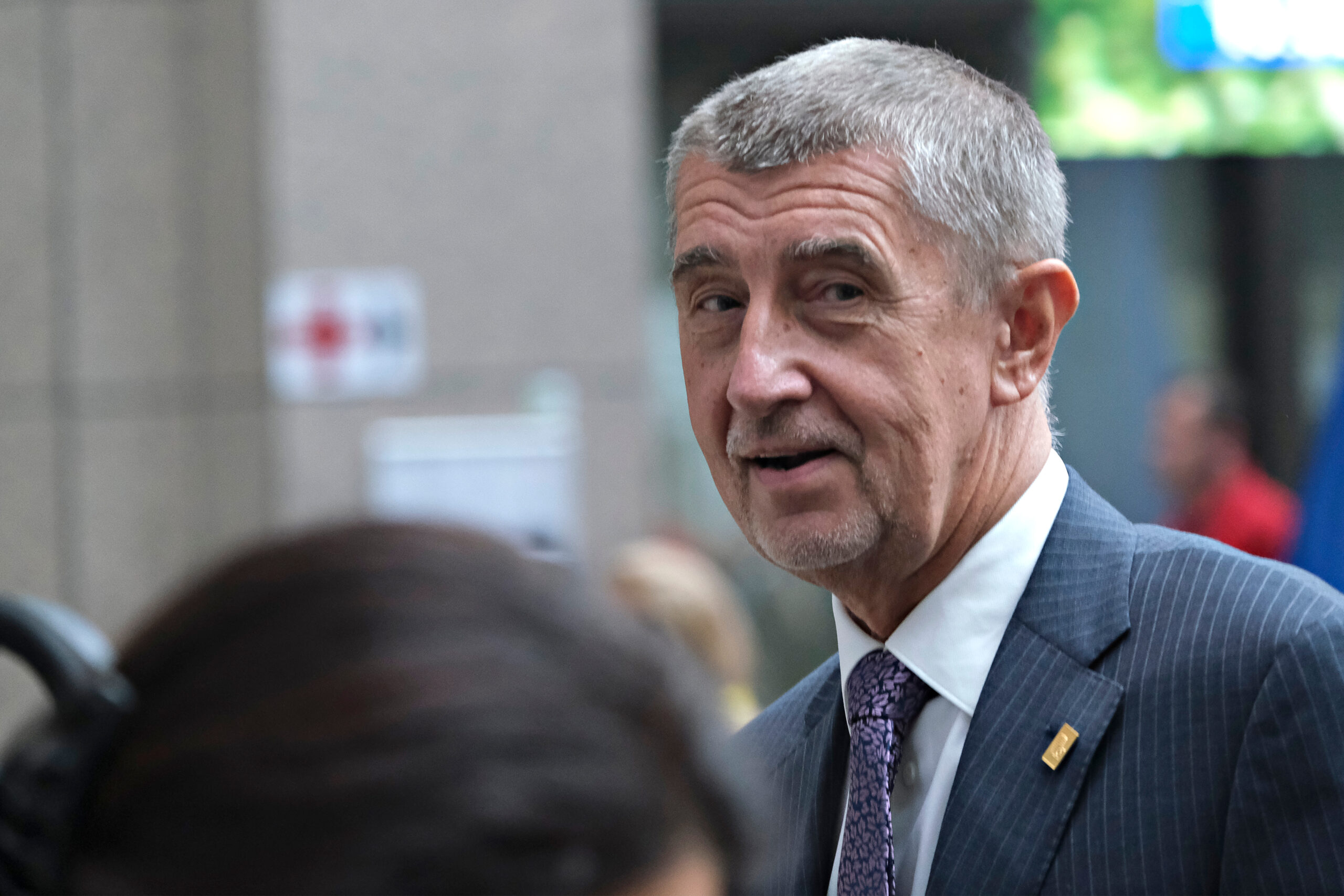DEAR READER,
Last week Axios wrote that the US has been quietly working with Russia on a new plan to end the war in Ukraine. The first draft got a polite nod from Moscow but made Kyiv and Europe pretty anxious. However, over the weekend, US and Ukrainian negotiators rolled out an “updated and refined peace framework”, with Europe chiming in. The details are still in flux, so we will keep an eye on it and hit you with our take next Monday.
Meanwhile, we are zooming in on Hungary. With the pre-election campaign underway, we realized we have been talking about Hungary a lot, but we have not addressed the main question: whether Péter Magyar’s TISZA party can put an end to Viktor Orbán’s 16-year-long hegemony. Akos Kovacs will break down the political landscape and what to watch as things heat up.
Enjoy reading this week’s “brief”!
— Giorgi Beroshvili, Editor
TOP STORIES OF THE WEEK
🇷🇺 / 🇺🇦 The leaked peace plan has ignited a political storm by demanding sweeping Ukrainian concessions that closely mirror Moscow’s terms. The draft would force Kyiv to withdraw from key Donetsk cities, accept a Russian-controlled “demilitarized zone,” freeze Crimea, Luhansk and Donetsk as de facto Russian, limit its army to 600,000, and renounce NATO membership in exchange for vague security guarantees and access to frozen Russian assets managed through a US-led mechanism. European allies, blindsided by the proposal’s origins, have countered with a softer framework that raises troop limits, preserves Ukraine’s NATO path, and offers a US Article 5-style guarantee; as of today, negotiators in Geneva say a “refined” plan is now emerging as Zelenskyy faces domestic pressure and Russia escalates winter strikes.
🇭🇺 RFE/RL Hungary service to close after US cuts funding. The Hungarian service of Radio Free Europe/Radio Liberty will cease broadcasting at midnight on November 21 after losing US government funding. Launched in 1950 and relaunched in 2020 amid press freedom concerns, the service provided independent news to Hungarian audiences. USAGM chief Kari Lake said the programming “undermined President Trump’s foreign policy” by opposing Orbán. Press freedom groups called the closure a “serious blow” ahead of Hungary’s 2026 elections (which is our top story this week).
🇦🇱 Albania opens final EU negotiation cluster. Last week, Albania launched its last remaining cluster in EU accession talks covering agriculture, fisheries, food safety and cohesion policy, and thus completing the opening of all chapters just one year after negotiations began. Prime Minister Edi Rama, who has pledged EU membership by 2030, called the milestone a national record and said he was proud of Albania, as recent EU progress reports place the country among the front-runners for membership. The rapid advance contrasts with neighbouring North Macedonia, whose accession path remains blocked by Bulgaria’s veto over constitutional and identity demands, leading Brussels to formally de-couple the two processes. Albania, which began screening in 2018 and opened talks alongside Skopje in 2022, now moves forward alone as it enters the most technical stage of aligning with the EU’s 35-chapter acquis.
🇧🇦 Bosnian Serbs elected Sinisa Karan as Republika Srpska’s new president. Karan, a close ally of Milorad Dodik, won 50.9% of the vote in a low-turnout election called after Dodik was banned from politics, pledging to continue Dodik’s policies “with ever greater force.” The campaign was marred by anti-Bosniak rhetoric, leading the SNSD party to be fined for hate speech. Karan will serve only until Bosnia’s general elections in October 2026. In short, Dodik may be out of office, but his influence is alive and well.
🇧🇾 Belarus pardons 31 Ukrainian prisoners in deal with Trump. Belarusian President Aleksandr Lukashenko has released Ukrainian detainees under an agreement with US President Donald Trump. The pardons, described as humanitarian gestures, involve prisoners who “committed criminal offenses” in Belarus and are being handed over to Ukrainian authorities. Trump reportedly encouraged the releases and eased some sanctions in return. Rights groups note that over 1,000 political prisoners remain in Belarus.
EXPERT OPINION
Orbán’s fresh tone, Magyar’s fresh squad

Next April, Hungarians will be casting their votes in what looks to be the most contested parliamentary elections the country has seen in a long time. The main question is whether Péter Magyar’s TISZA party can put an end to Viktor Orbán’s 16-year-long hegemony. As the elections approach, the campaign is already heating up, characterized by immense mobilization on both sides. On the one hand, Orbán’s FIDESZ is establishing its own community while also courting the undecideds. On the other, Magyar has just announced his candidates in an attempt to line up for the final showdown.
Until now, Orbán’s propaganda machine has been struggling to recover from the multiple crises it has been shaken by recently and to stall the TISZA’s explosive rise. Magyar has appeared to be immune to the character assassination attempts waged against him, and it took nearly two years for the pro-government spin doctors to regain the grip on the political agenda. Orbán’s squad is slowly adapting to the new conditions and has just recently launched a multi-faceted, but far from perfect, counter-attack to seize back the initiative.
To begin with, FIDESZ and its vast media empire carry on its harsh de-legitimization campaigns against its opponents on the domestic stage. Pro-government outlets have been constantly depicting Magyar as “the puppet of Brussels and Kyiv” and accusing TISZA of plunging Hungary into war. These messages are transmitted via various channels, showcasing the diverse toolkit at Orbán’s disposal. Besides the massive network of pro-government mouthpieces, misleading AI-generated videos have also begun to be utilized, with the prime minister himself sharing them.
In parallel, the government has kick-started another “national consultation”, this time on the hypothetical tax increases of TISZA. Such non-binding surveys are recurring instruments of the Orbán regime that aim to back the government’s initiatives and keep the voting base engaged. In line with this, thousands of defamation posters flooded the country as a result of a covertly financed billboard campaign, again, a distinguishing feature of the Orbán era.
In addition to the demonizing messages, Orbán has also put the indecisive voters in his crosshairs. Contrary to the beginning of 2025, when Orbán had labelled the opposition as “stink bugs”, he has conceivably softened his tone. For instance, he urged his supporters to speak to the “misled” Hungarians and invited the “peace-wanting” Hungarians to join their forces. This trend, which can indicate a shrinking support for the government, is further justified by Orbán’s mysterious shift, which saw him restart giving interviews to relatively independent media, a phenomenon unprecedented in recent years.
Notwithstanding, tensions have still been high, since the personal data of more than 200,000 TISZA supporters were leaked from the party’s mobile app. Later, the database became freely searchable, and it was disseminated by government-leaning outlets till the authorities finally put a stop to it. While Magyar frames the incident as a deliberate attack, government commentators suggest the responsibility lies with “Ukrainians”.
The issue significantly impacted Magyar’s position and further delayed the announcement of his candidates. Currently, TISZA is organising a two-round primary election to select who to run in the country’s 106 individual constituencies. The nominees predominantly come from civil society, and their successful performance is key to any regime change aspiration. Out of 199 seats in the parliament, 106 are decided by the first-past-the-post constituencies, and only 93 are from party lists.
Magyar’s nationwide political rallies have proven incredibly successful, which has encouraged Orbán to also leave the capital. Recently, the two rivals held their events simultaneously in Győr. FIDESZ’s “Anti-War Assembly” took place behind closed doors, while TISZA kept on taking to the streets. This mirroring already suggests that the rest of the campaign will be marked by this duality: the two camps pushing their own agendas, with minimal interaction, in an attempt to appear stronger to the still undecided. In light of that, polls should also be taken with a pinch of salt, as they are often only used to back one’s narrative.
At this stage, it seems that only two factors can profoundly influence the final outcome: Orbán’s ability to mask the economic hardships and serious, inexplicable communication mistakes. The former can set the trends, the latter, if occurs, can cause another landslide. We’ll see who errs first!
— Ákos Kovács, Member of the Central Europe Association Hungary
As a member of New Eastern Europe, you will enjoy unlimited access to premium articles, our full archive, downloadable PDF issues, and our podcast. Choose digital-only or add print delivery, and join a community that values independent, in-depth analysis.
Smart Investors Don’t Guess. They Read The Daily Upside.
Markets are moving faster than ever — but so is the noise. Between clickbait headlines, empty hot takes, and AI-fueled hype cycles, it’s harder than ever to separate what matters from what doesn’t.
That’s where The Daily Upside comes in. Written by former bankers and veteran journalists, it brings sharp, actionable insights on markets, business, and the economy — the stories that actually move money and shape decisions.
That’s why over 1 million readers, including CFOs, portfolio managers, and executives from Wall Street to Main Street, rely on The Daily Upside to cut through the noise.
No fluff. No filler. Just clarity that helps you stay ahead.
QUIZ OF THE WEEK
Central and Eastern Europe has a long history of inventions, and we are not talking about the Rubik’s Cube. This region’s inventors have shaped the modern world in ways you might not expect. Test how well you know the minds behind some everyday breakthroughs.
László Bíró’s ballpoint pen changed desks everywhere. Which country can claim the inventor behind this everyday essential?
Nicolae Paulescu identified a pancreatic extract with insulin-like effects well before modern treatments emerged. Which country was home to this pioneering physiologist?
Soft contact lenses started as a clever experiment by Otto Wichterle. Which country gets credit for the scientist behind the breakthrough?
OPPORTUNITY OF THE WEEK
Maastricht University & Stockholm University — Workshop: Who Decides, Who Benefits? Democratic Legitimacy in the EU’s Enlargement Policy (April 7–10, 2026) — A four-day research workshop bringing together scholars of EU studies, comparative politics, and international relations to examine the democratic legitimacy of the EU’s enlargement process. The programme explores internal and external dimensions of legitimacy from transparency and inclusiveness to participation and reciprocity, and assesses how public and elite perceptions are shaped amid rising politicisation and geopolitical pressure.
ARTICLES OF THE WEEK
CARTOON OF THE WEEK

Russian maternity
Do you want to see more of Andrzej’s drawings? Check out our dedicated gallery page featuring his cartoons here.






